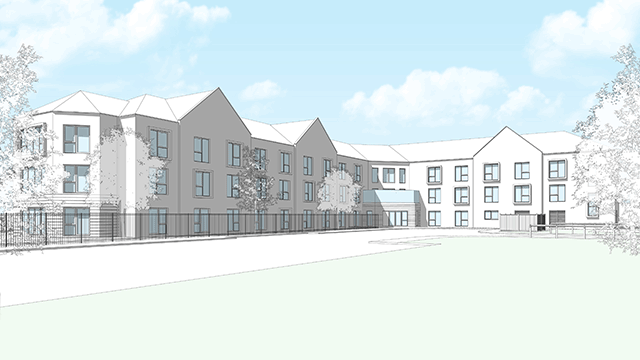EG will be following the local election results and analysing what it means for real estate.
Bookmark this page to check back for updates
Local Elections 2018: Property’s relief as Tories hold on to crucial London strongholds
UPDATE: Expectation that Labour could turn the map red in London have proved ill-founded, with the Conservatives holding on to some of the capital’s most high-profile boroughs.
The news will come as a relief to many in the property industry, who may have feared an increase in power for Labour could have resulted in an anti-development stance in many of the capital’s key areas combined with a move further left by the party, propelled by the rise of Momentum.
As it was, the Tories managed to hold Westminster, Wandsworth and Kensington & Chelsea, all of which were considered under threat. Kensington & Chelsea, the borough of the Grenfell Tower fire, was seen as a wildcard because of the tragedy. Hillingdon has also remained blue, as has Bromley.
The Conservatives did cede one borough – Richmond – a gain for the Liberal Democrats. Havering remained in no overall control.
“The great surprise is that there was no great surprise. Many UK property professionals will breathe easier now as the likelihood of an early election and a new government has decreased, and along with it any possible new regulations targeted at private wealth, especially property,” said Walter Boettcher, chief economist at Colliers International. “Overall, the election result offers the sector a morsel of stability in the short-term as the uncertain details of Brexit are fleshed out.”
It suggests that a number of the harder line policies that some of the Labour authorities were perhaps seeking to introduce are unlikely to be realised
“It suggests that a number of the harder line policies that some of the Labour authorities were perhaps seeking to introduce since Momentum[’s rise] on elements such as affordable housing, the appropriation of property and a whole raft of other things are unlikely to be realised. So I suspect from the development industry it is probably a cautious welcome,” added Ian Anderson, senior director – planning and development at Cushman and Wakefield. “I think there will be a lot of people waking up this morning and looking like it really is business as usual.”
London remains expectedly dominated by Labour and has held on to existing London boroughs in Barking & Dagenham, Brent, Camden, Croydon, Ealing, Enfield, Greenwich, Hammersmith & Fulham, Redbridge, Haringey, Hackney, Islington, Lambeth, Lewisham, Newham and Southwark.
That is not to say that the political landscape is not changing though and there are dramatic changes that the property industry must adapt to. In Newham, Momentum-backed Rokhsana Fiaz replaces Sir Robin Wales, who had already resigned as mayor, in a landslide vote.
Most notably, in Haringey, Momentum-backed Joseph Ejiofor is expected to become leader. This is expected to spell the end of the council’s £2bn HDV joint venture with Lendlease to build 6,000 homes.
The company’s managing director of property, Jonathan Emery, says, “We accept new councillors may have different views on some of the plans put forward and we look forward to meeting with the borough’s new leader and cabinet. We want to listen and discuss how we can work together to best deliver their vision and create a positive and long-lasting impact for the people of Haringey.”
There will be people with holdings in Conservative-held areas feeling a lot more comfortable this morning
Ejiofor’s elevation follows the resignation of Claire Kober earlier in January. She has now been appointed as director of housing at Pinnacle Group.
“There will be people with holdings in those [Conservative-held] areas feeling a lot more comfortable this morning, having seen the Haringey experience and the massive undermining of that partnership,” says Jonathan Goldstein, chief executive of Cain International, who urged politicians not to be swept up in anti-development rhetoric.
“It is possible to approach development with a level of reasonableness in terms of commerciality and serving a social purpose,” he said.
“It is possible to combine both these, and the view that they are mutually exclusive is a dangerous one in modern politics.
“This notion [that] public/private partnerships are inherently bad for society is misguided. There is a type of capitalism that can exist with a sense of social purpose and it is wrong to castigate all people who are in the commercial world as if they are against the interest of the ordinary man.
“It is a short-sighted, outdated and naïve notion.”
Elections ‘not the end’ for property’s political battle
EG editor Damian Wild and residential analyst Paul Wellman discuss the election results with the BPF’s Ian Fletcher, Dean Clifford of Great Marlborough Estates and Guildmore’s Martin Bellinger.
Listen to the podcast below, and read the full story here.
Kober reaches Pinnacle
The former leader of Haringey Council, Claire Kober, has joined Pinnacle Group as director of housing. She announced she would not stand for re-election earlier this year. Read more here.
Editor’s reaction: A damp squib? Not quite

Not for the first time, an election night did not play out as expected.
Yes, Labour picked up Plymouth, but the party did not claim a single London council.
Kensington and Chelsea, Wandsworth and Westminster stayed blue. Barnet turned blue. The Lib Dems took Richmond.
A damp squib, then? Not quite.
Notwithstanding the status quo by and large prevailing, London’s politics is changing. Fast. And the real estate industry will have to change too.
In Newham, mayor Sir Robin Wales has stepped down after 23 years in post.
In the second half of his term especially, he has been instrumental in drawing significant private investment into the borough’s infrastructure.
His successor, longstanding councillor Rokhsana Fiaz, has called on Labour to “unite” and “be truly radical again”.
Hers is an agenda which prioritises an “ambitious programme of genuinely affordable housing, with an initial target of 1,000 over four years”. How much of a role the private sector will be expected to play in delivering that remains to be seen.
In Haringey, leader Claire Kober has also stood down in the face of opposition to the LendLease-backed Haringey Development Vehicle.
Her successor has not yet been named. She – or he – is not expected to share Kober’s enthusiasm for public-private partnerships when confirmed next week.
LendLease has already acknowledged that new councillors “may have different views”.
But it’s not just elections which deliver political change. (Nor just referendums either.)
This week, Shelter’s former head of policy Toby Lloyd has been appointed Number 10’s housing policy adviser.
He will bring fresh thinking to policy – from the green belt (some of which he believes could be released), to right to buy (which he has said should be extended to the private rented sector) and, especially, to affordable housing.
“The single most important thing we can do to build more affordable homes is lower the high cost of land,” he has written.
But it is the courts that are perhaps driving the most impactful change.
This week the high court found in favour of Islington Council in its affordable housing dispute with developer Parkhurst Road.
The developer had argued that a 10% affordable housing commitment was the “maximum reasonable amount of affordable housing” it could provide on a project in Holloway, N7. Islington’s assessment argued that the developer should provide 34%.
The ruling will be used by local authorities and the GLA when calling for more affordable housing commitments in applications.
So change is coming, driven by politics, the law and shifting public opinion.
Wasn’t it ever thus?
Lendlease braces for Momentum
Haringey Council’s partner on its £2bn HDV joint venture has acknowledged that the new councillors “may have different views” than the previous administration. Click here for more.
PPPs ‘can serve social purpose’, says Goldstein
The chief executive of Cain Hoy has defended public private partnerships in the wake of the local election results. Read the full story here.
The six boroughs set to swing
Is there a left-field threat to developers if Labour make significant gains in the capital? Can the Liberal Democrats add to solitary Sutton? EG takes a look at the areas where the contest is set to be close.
The big news stories in the run-up to the election
In Westminster, council deputy leader and cabinet member Robert Davis stepped down from his role while the council investigates gifts and hospitality he has recieved.
In Haringey, council leader Claire Kober is not standing for re-election, leaving the sign-off on the Haringey Development Vehicle to the next leader. The HDV has been unpopular with some residents, who lost a high court battle to halt the deal in February.
The Grenfell Tower fire is one of the main issues in Kensington and Chelsea. Michel Mossessian argues that it exposes flaws in the housing system, while court battles have been fought over who is responsible for the cost of re-cladding other potentially at-risk buildings.
Croydon Council has approved Hammerson and Westfield’s plan to build a new shopping mall, first proposed in 2013. The borough has also seen a high-rise residential boom, with Pocket Living and Henderson Park and Greystar among those getting the green light to build homes.











